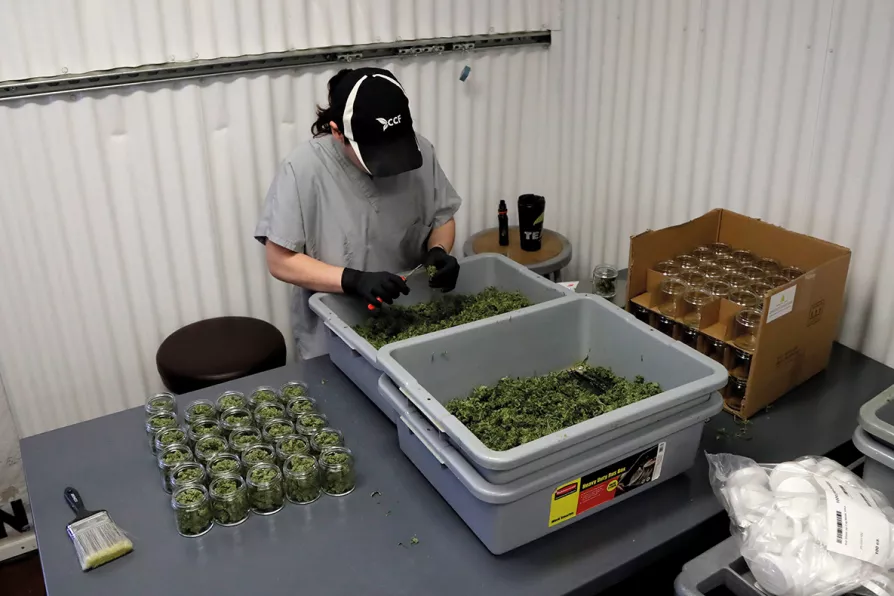As women dominate public services yet face pay gaps, unsafe workloads and rising misogyny, this International Women’s Day and TUC Women’s Conference must be a rallying point, says ANDREA EGAN

 A worker prepares medical marijuana in Egg Harbor Township, New Jersey
A worker prepares medical marijuana in Egg Harbor Township, New Jersey
ON April 12 2023 German Health Minister Karl Lauterbach announced the proposed plan for Germany’s cannabis legalisation. A two-stage process was laid out with immediate plans for the decriminalisation of cannabis for recreational use and the rollout of state-regulated not-for-profit cannabis social clubs where members will be able to buy cannabis for personal use. The law is currently still in its draft form and may be altered before it is voted through.
Germany’s club system would be like fellow EU member Malta, which passed legislation to decriminalise cannabis in 2021 and started accepting license applications for the clubs earlier this year.
The second stage of Germany’s plan is short on details but will involve a limited five-year pilot exploring the possibilities for a recreational consumer market in an EU country. However, at this time little information has been released to say how and where this will happen.

The West’s dangerous pesticide dumping in Africa is threatening biodiversity, population health and food sovereignty, argues ROGER McKENZIE

US tariffs have had Von der Leyen bowing in submission, while comments from the former European Central Bank leader call for more European political integration and less individual state sovereignty. All this adds up to more pain and austerity ahead, argues NICK WRIGHT












